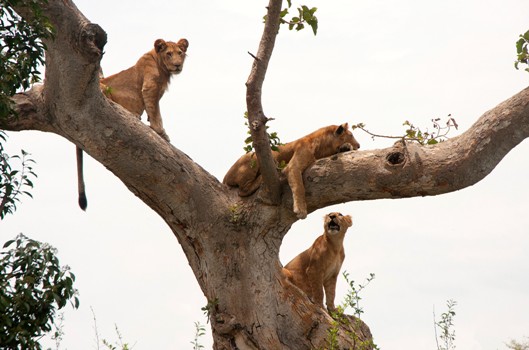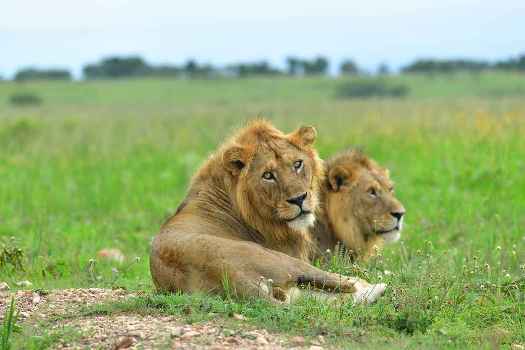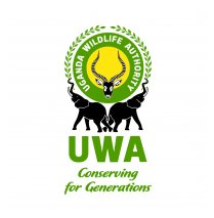Uganda lion tracking experience is a research and conservation activity of the Uganda Carnivore Program (UCP) in Queen Elizabeth national park. To protect lions including tree climbing lions, leopards and hyenas in the face of raising threats to their survival through research, radio collaring, and monitoring. This program has been able to use data and foster understanding of the interaction between lions and humans and ultimately manage human-lion conflicts.
Lion tracking is open for visitors on safari to Queen Elizabeth N.P. The activity offers an opportunity to see the big cats that you might not see during others safari programs. Visitors are accompanied by an expert team of wildlife rangers. You will track a pride of lions with radio collars fitted to some using GPS. Lions follow their natural instincts in a given territory. As you track the lions, you will get to learn about the behavior patterns of lions. Since, this requires driving off track, lion tracking can be challenging depending on the nature of terrain.
You can read about how does a safari day look like in Uganda.
Tracking two males that swam across the Kazinga channel
Two male lions (Tibu and Jacob) made an incredible 1 km swim across the Kazinga channel without any attack from crocodiles and hippos. Jacob has an amputated leg which he lost when he fell into a snare trap. The lions made such long distance swimming in order to free from rival prides. And also to avoid human disturbance by going to a new territory on the opposite side of the channel.
Kazinga channel is a 32 km long tropical waterway located in Queen Elizabeth National Park. Connecting Lake Edward and Lake George as a natural corridor for wildlife. Over 60,000 people living adjacent to Queen Elizabeth national park. Some areas lack fences and there’s increased human livestock predator interactions which results into poaching, illegal wildlife trade, and habitat loss. A number of female lions lost their lives during the Covid-19 pandemic which has lead to an imbalance of a female to male ratio in the park.
As such, Uganda’s lion tracking experience is a mechanism to raise funds to tackle the human-lion conflict and recover the lion population. The permit cost is $200 per person for foreign non residents, $150 for foreign residents, and 200,000 for East African citizens and is available for booking through Uganda Wildlife Authority head offices in Kampala city or a tour operator.

Go beyond the typical lion tracking experience
You can visit the local communities which are benefiting from this program in our post about Queen Elizabeth National Park.
For any more Information you may need just contact us at Uganda Safari Travel Guide



